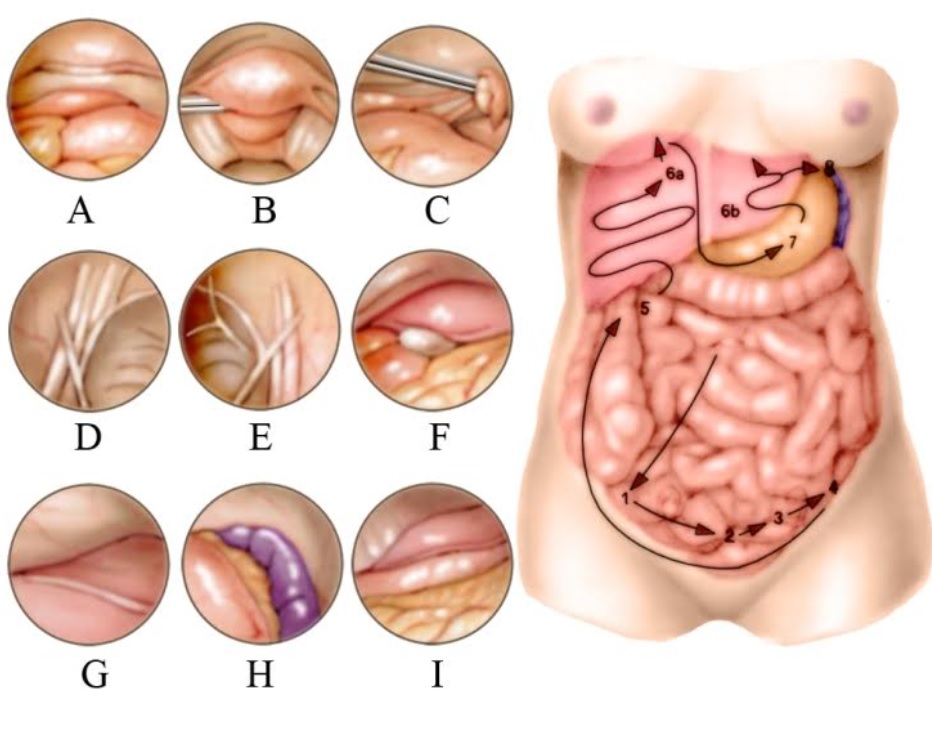Your gut health is an integral part of your overall wellness. The digestive system plays a critical role in the body, breaking down the foods you eat into nutrients, which are then absorbed for energy, growth, and cellular repair. Furthermore, your gut houses trillions of bacteria – the gut microbiota, that have numerous roles from aiding digestion to supporting your immune system. With such a pivotal role in maintaining overall health, prioritizing your gut health is key to a balanced and healthy lifestyle. This ultimate guide will equip you with practical and effective strategies to enhance your gut health.
Understanding the Microbiome
Our gut is home to an extraordinarily diverse and complex community of organisms known as the microbiome. This microbiome, primarily made up of bacteria, plays a crucial role in digestion, nutrient absorption, immune system function, and even mental health. Scientists continue to uncover more about the ways in which our microbiome affects our overall health and well-being. They have found that each person’s microbiome is unique and can be influenced by various factors including genetics, age, diet, and lifestyle. Therefore, understanding and taking care of your microbiome is an integral part of improving gut health.
The Role of Diet in Gut Health
When it comes to the gut, what you eat significantly influences the diversity and number of bacteria in your gut. Foods high in fiber, like fruits, vegetables, and whole grains, are particularly beneficial as they act as prebiotics, providing nourishment for beneficial bacteria. Also, including fermented foods such as yogurt, kefir, and sauerkraut in your diet can help boost the number of beneficial bacteria in your gut, thanks to their probiotic content. Research also suggests that digestion supplements can be beneficial, especially for people with specific nutritional needs or digestive conditions.
The Importance of Hydration

Water plays an essential role in the digestive process. It helps break down the food you eat, enabling your body to absorb nutrients effectively. Without adequate hydration, digestion becomes less efficient, which could lead to various digestive problems like constipation. Moreover, water is crucial in maintaining the mucosal lining of the intestines, which helps keep your gut healthy and supports the gut bacteria. Therefore, it’s essential to stay properly hydrated for optimal intestinal health.
Regular Exercise for Gut Health
Physical activity isn’t just beneficial for weight management and heart health; it can also impact your intestinal health positively. Regular exercise stimulates the muscles in your gut and helps maintain regular bowel movements, which is critical for overall gut health. Additionally, research has indicated that regular physical activity can enhance the diversity of gut bacteria, further supporting the gut.
Mindful Eating Practices
Mindful eating involves paying full attention to the eating process, focusing on the colors, smells, textures, and flavors of your food, and noting any physical sensations or thoughts that arise. Not only does this practice promote a healthy relationship with food, but it also helps to improve digestion and optimize nutrient absorption. Eating mindfully also allows your body to signal when it’s full, preventing overeating, which can be taxing on your digestive system. Moreover, eating fermented foods can boost your gut.
Stress Management
While it may seem unrelated, chronic stress can significantly impact your intestinal health. When your body is under stress, digestion can slow down or speed up, affecting the balance of gut bacteria. Additionally, chronic stress can lead to inflammation in the gut, leading to several digestive issues. Incorporating stress management techniques like meditation, deep breathing exercises, yoga, or other relaxation activities can help manage stress and, in turn, support gut health.
Adequate Sleep and Gut Health
Sleep isn’t only about rest; it also has a profound impact on your gut. The gut has its own biological clock, and disrupting this can lead to an imbalance in the gut bacteria, potentially leading to digestive issues. Ensuring you get enough quality sleep is, therefore, a critical part of maintaining good intestinal health. Regular sleep habits, a dark and cool sleep environment, and avoiding screens before bedtime are some strategies to promote better sleep.
Medication and Gut Health
Certain medications, particularly antibiotics, can disrupt the gut microbiota because they can kill both harmful and beneficial bacteria. Therefore, it’s important to use these medications judiciously. Always consult with your healthcare provider about the potential impacts of medications on your gut and explore alternatives where necessary and possible.
Regular Medical Check-ups
Regular medical check-ups are a preventative measure to maintain your gut health. During these visits, any potential gut issues can be detected early and addressed before they escalate into more significant problems. Be open with your healthcare provider about any changes or issues with your digestion, bowel habits, or overall gut health.
Making a Plan
Improving intestinal health requires consistent effort and changes to your lifestyle habits. It’s important to set realistic and achievable goals for diet, exercise, stress management, and sleep. Remember, the objective isn’t perfection, but progress and maintaining these healthy practices over the long term.
The Role of Fiber
Fiber, often touted for its role in preventing heart disease and diabetes, plays a vital role in intestinal health as well. Dietary fiber, found in foods like whole grains, fruits, vegetables, and legumes, acts as a food source for the beneficial bacteria in your gut. This process of bacterial fermentation produces short-chain fatty acids (SCFAs), which have numerous health benefits, including lowering inflammation and strengthening the gut barrier. Incorporating a variety of fiber-rich foods into your diet can help nourish your gut microbiome and promote its diversity.
Probiotics and Prebiotics: The Dynamic Duo

Probiotics are live beneficial bacteria found in fermented foods like yogurt, kefir, and kimchi, or in supplement form. They can help populate your gut with healthy bacteria, balancing your gut microbiome. Prebiotics, on the other hand, are types of dietary fiber that feed the friendly bacteria in your gut. Foods like garlic, onions, and bananas are high in prebiotics. Incorporating both probiotics and prebiotics into your diet can help promote a healthy gut microbiome.
Alcohol and Its Effects on Gut Health
While moderate alcohol consumption can have certain health benefits, excessive alcohol intake can damage your intestinal health. Alcohol can disrupt the balance of bacteria in your gut and damage the gut lining, leading to a “leaky gut” and potentially contributing to inflammation and liver disease. Reducing alcohol consumption or choosing to abstain entirely can contribute to improved intestinal health.
Smoking and Gut Health
Cigarette smoking can have detrimental effects on your digestive health. Research has shown that smoking alters the composition of the gut microbiota, increases inflammation, and can contribute to various gut diseases, including Crohn’s disease and colorectal cancer. Quitting smoking is a crucial step toward improving digestive health.
The Impact of Improved Gut Health
By implementing these strategies, you’re likely to notice improvements not only in your digestion but also in your overall health. A healthy gut contributes to a strong immune system, heart health, brain health, improved mood, healthy sleep, and effective digestion. It’s a key player in maintaining overall health and well-being.
Your Gut Health, Your Responsibility
Digestive health is an important aspect of your overall well-being and should not be overlooked. Regularly incorporating the strategies discussed above can greatly improve your gut health and overall wellness. Remember, taking charge of your digestive health is not just about resolving discomfort or digestive issues. It’s about preventative care, taking proactive steps to nurture and care for your body, from the inside out.
As you take these steps to enhance your digestive health, you’re not only investing in your physical wellness but your mental and emotional health as well. So, embrace the journey of nurturing your digestive health, because ultimately, your health is your responsibility.
